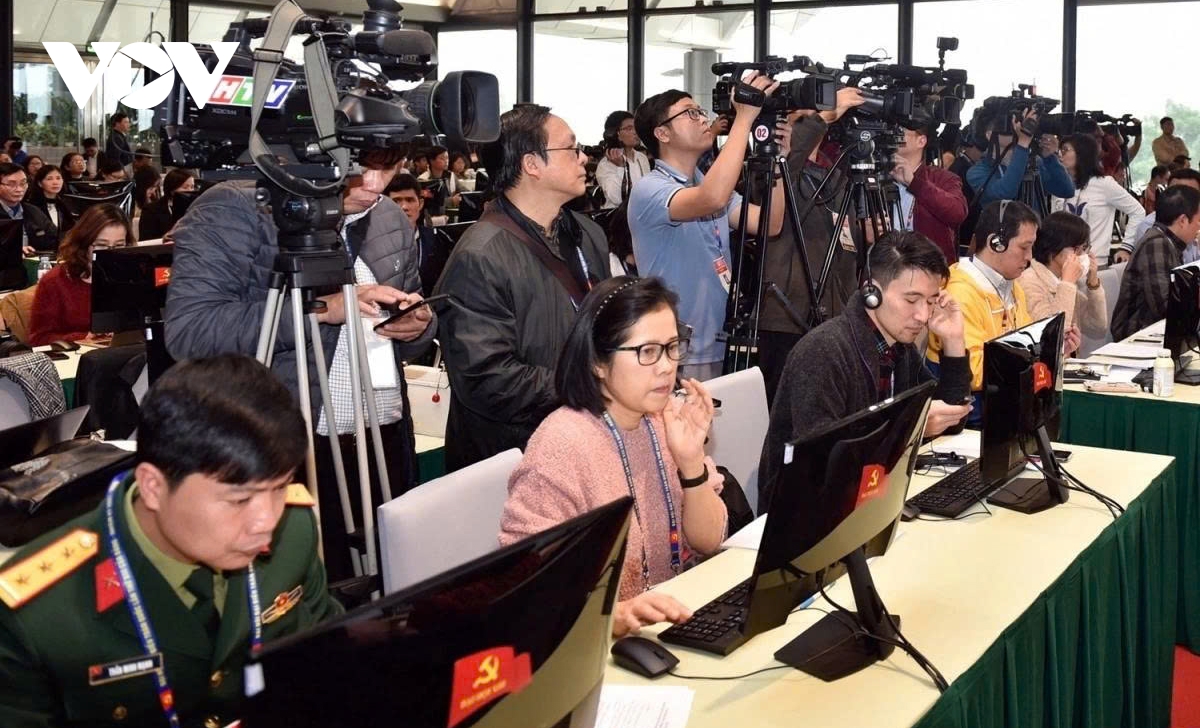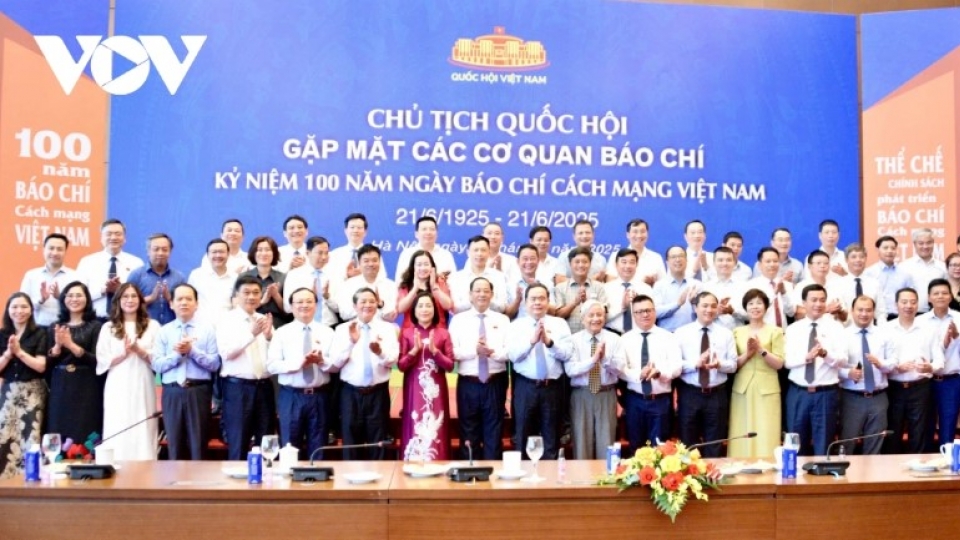The undeniable and enduring value of Vietnam’s revolutionary press
VOV.VN - Over the past century, Vietnam’s revolutionary press has stood as a steadfast pillar in the nation’s political and social landscape, faithfully representing the voice of the Party, the State, and the people.

Since the launch of the first revolutionary newspaper Thanh Nien (Youth) by leader Nguyen Ai Quoc on June 21, 1925, the Vietnamese revolutionary press has grown into a powerful and indispensable pillar of the nation. As the voice of the Party, the State, and the people, it has played a crucial role in the country’s political and social life. Alongside its significant achievements, however, the revolutionary press has also had to confront distorted information and false narratives spread by hostile forces.
Identifying distorted narratives
In the context of international integration and the rapid expansion of information through social media, hostile forces have taken advantage of loopholes to spread misleading and distorted narratives. They accuse Vietnam of lacking press freedom, imposing excessive censorship, and claim that the media serves solely as a one-sided propaganda tool for the Party and the State. These forces deliberately misrepresent the role of the Vietnamese press, alleging that it avoids criticism, refrains from combating corruption, and only highlights minor issues while concealing more serious problems. At the same time, they promote so-called "independent media" outlets that often disseminate false and unverified information about Vietnam.
These hostile forces frequently exploit social networks by creating fake accounts and fan pages to spread false information. They utilize deepfake technology and other forms of fabricated media to mislead the public and create confusion. Under the guise of advocating for “human rights,” they falsely accuse Vietnam of suppressing freedom of speech and call for international intervention to apply pressure on the country.
The ultimate aim of these activities is to erode public trust in official media, undermine national unity, drive a wedge between the people and the Party, incite social unrest, and ultimately weaken the foundations of the socialist regime in Vietnam.
Revolutionary Press – A 100-year legacy of commitment
In reality, Vietnam always respects press freedom as stipulated in the 2013 Constitution and the 2016 Press Law along with guiding documents. Article 25 of the 2013 Constitution clearly states that “Citizens have the right to freedom of speech, freedom of the press, access to information, assembly, association, and demonstration. The exercise of these rights shall be provided by law.” The 2016 Press Law and related legal documents have further clarified these rights, establishing a strong legal foundation for journalistic activities and ensuring press freedom within the boundaries of the law.
As of the end of 2024, Vietnam has a total of 884 press agencies, including 812 newspapers and magazines and 72 radio and television stations. The journalism sector employs around 41,000 people, with over 21,000 journalists holding official press cards. These press agencies operate under the leadership of the Party and the management of the State. At the same time, they serve as open forums for the people to express their opinions and supervise the actions of public authorities. Law enforcement in journalism is not intended to suppress freedom of speech, but rather to correct violations and prevent the abuse of press freedom to spread misinformation or harm national interests.

Throughout the revolutionary process, the press has always been a sharp tool to disseminate Marxism-Leninism, awaken patriotism, fight colonialism and imperialism, encourage the whole nation to gain independence and build the country. It has truthfully reflected life and contributed to broadcasting Vietnam’s just voice to the world.
During the Đổi Mới (Renovation) process and international integration, the press continues to accompany the country’s development, disseminating the policies and guidelines of the Party and State, while acting as a bridge between the people and the leadership. It also promotes social supervision and criticism, uncovering many corruption cases, contributing to a cleaner and more transparent government and reinforcing public trust in the Party’s leadership.
In addition, the press actively preserves and promotes traditional cultural values, combats outdated customs, and selectively adopts global cultural achievements to build a progressive Vietnamese identity. In today’s era of deep international integration, the press plays an important role in promoting Vietnam’s image to the world and informing the public about global affairs. Most importantly, the revolutionary press remains a sharp ideological tool in defending the Party’s ideological foundation, timely countering distortions and hostile narratives, and safeguarding national unity and political stability.
As Vietnam enters the digital era, its revolutionary press must continue to uphold its proud legacy while embracing innovation and modernisation to meet society’s growing and diverse information needs. A key and pressing responsibility is to promptly identify and counter false or distorted narratives, thereby safeguarding the Party’s ideological foundation. This is essential to ensuring that the revolutionary press maintains its vital role and influence within the country’s political and social landscape.





